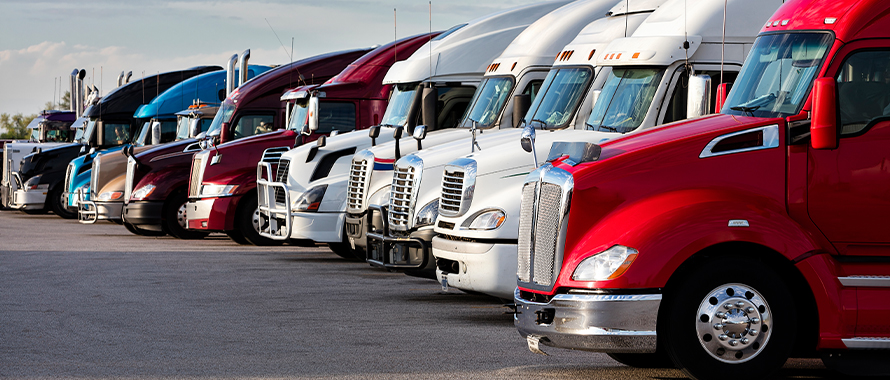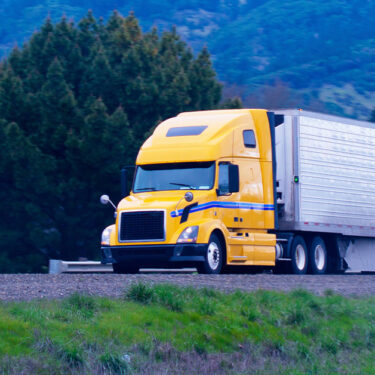The transportation industry faces a variety of challenges today, including the difficulty of staying profitable as average trucker expenses exceed $2 per mile. To learn more about how Transportation Insurance can help protect companies, we spoke with William Mills, Director, Transportation, Burns & Wilcox, Salt Lake City, Utah.
What are some of the greatest risks in transportation today?
W.M.: Accidents involving trucks can be severe and costly, often resulting in significant property damage, personal injury, or loss of life. Theft of or damage to cargo is another significant risk, along with Environmental Liability, Cybersecurity, and Workers’ Compensation. All trucking companies face a range of complex claims that can have severe financial and operational consequences.
What should companies be aware of relative to these risks?
W.M.: Companies should know there are insurance policies that can minimize their risk and financial loss smoothly and quickly, which will allow the transportation company to focus on the other aspects of their business.
What kinds of insurance policies can help transportation companies respond to these threats?
W.M.: The typical trucker is required to purchase a Public Liability Insurance policy, which will provide a limit of at least $750,000 per accident. The typical Truck Physical Damage Insurance policy will provide a stated amount to cover the cost of the equipment owned and operated by the trucker; a predetermined deductible is applied. The trucker should also carry Motor Truck Cargo Liability Insurance, which will pay for the damage to the cargo being carried; a deductible is generally applied. The Cargo policy will also cover earned freight, debris removal, and other expenses incurred to protect the cargo and get it delivered as quickly and efficiently as possible. Workers’ Compensation Insurance can provide coverage for the insured driver, and a Cyber & Privacy Liability Insurance policy can be purchased to cover cyber security attacks or data breaches.
What steps should companies take to complement their Transportation Insurance to prevent exposures?
W.M.: There are many services available to help companies mitigate their risks. Many insurance companies are providing, almost without cost, telematics for each power unit. The telematics record data on the driving of the vehicle and measure starts and stops, speeds, hard braking, and more. The data is kept electronically and shared between the company and the trucker. The device helps to identify drivers that are more prone to accidents. Also, many insurance companies are providing forward-facing dash cameras. That way, in the event of an accident, there is visible proof as to who is at fault. There are services that will analyze all Department of Transportation (DOT) data and scores to help the trucking companies set up driver training and equipment maintenance programs. There are also services that provide drug tests on the drivers and assist in keeping driver files. All of the above are good investments for the trucking company.
Could you provide an example of a scenario you have dealt with that would be illustrative of the types of risks we have been discussing?
W.M.: We insure accounts ranging in size from one vehicle up to 200 or so. On one such fleet, the customer had equipment valued at nearly $4 million. We were able to provide a competitive rate on the physical damage and include the profit-sharing provision. At the end of the policy term, as the account had very favorable earnings, we were able to return 25% of the premium that had been paid for the physical damage coverage. We were not only able to provide a competitive rate up front but were also able to return 25% of that premium when the policy renewed.
Why should someone consider Burns & Wilcox for their Transportation Insurance needs?
W.M.: Burns & Wilcox has a team of well-seasoned underwriters who understand the insurance marketplace and transportation industry. Our major markets are highly rated, have longevity, and offer telematics and dash cameras. We can provide:
- Several options on limits of liability
- A variety of deductibles on physical damage and provisions like profit-sharing and aggregate deductibles
- High limits on cargo coverage
- Coverage on commodities that other companies exclude from their form
- Coverage to customers who have been cancelled or non-renewed for various reasons
What questions should brokers be asking their clients relative to these products?
W.M.: Could you use help with your driver meetings or some videos to help train your drivers? Are your limits and deductibles sufficient to cover your assets and still provide you with adequate coverage? Do you have proper environmental and cybersecurity coverage? How long has it been since you shopped your insurance? It is wise to look at what different companies and brokers have to offer.
TRANSPORTATION INSURANCE
WHY YOUR CLIENTS MIGHT NEED IT: From driver shortages to fraudulent insurance claims, the transportation industry is facing great challenges.
PROTECTS AGAINST: A range of legal and financial costs related to delivery delays, theft, damaged goods, accidents, and more.
EXPERT OPINION: “The trucker should also carry Motor Truck Cargo Liability Insurance, which will pay for the damage to the cargo being carried… and cover earned freight, debris removal, and other expenses incurred to protect the cargo and get it delivered as quickly and efficiently as possible.”




